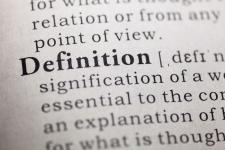Juniors: This one says college, that one says university -- What's in a name?
Posted on Mon, 04/14/2014 - 11:57
As you research colleges for an initial list of schools to which you may apply, understanding how they "name" or characterize themselves may provide important information. Whether a school is a “college” or a “university” can make a difference.
Most— but not all— colleges and universities offer a liberal education. That doesn’t refer to politics! “Liberal” in this case goes back to the original meaning of the word: “unrestricted.” It’s an educational approach where a student is called on to examine problems and issues from multiple vantage points and learns how to think, communicate, question, and probe. The rationale behind a liberal education is that the world is changing rapidly and training for a specific discipline or job is ultimately less practical than learning how to be ready for a world unknown.
Undergraduate education in the United States is dominated by institutions that hold to the notion that a liberal education is the best way to prepare for a life of significance, meaning, and means. There are, however, also terrificc options that do not insist students be liberally educated.
Here are the definitions of the four general categories of selective four- year higher education
institutions:







